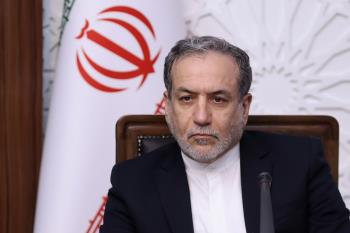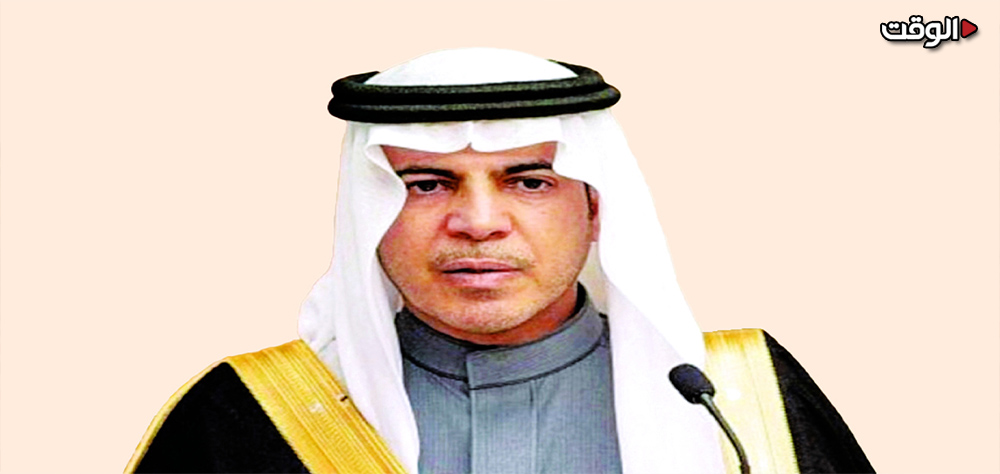Alwaght- Months after Saudi resumption of diplomatic relations with Syria, the Arab kingdom has named a new ambassador to Damascus and Faisal bin Saud al-Mejfel will soon start his work in Syria, reported official Saudi Press Agency.
This appointment is coming in the light of the new atmosphere created in Saudi-Syrian relations, after the meeting of Saudi Crown Prince Mohammed bin Salman bin Abdulaziz Al Saud with Syrian President Bashar al-Assad during the summit of Arab countries in Bahrain in May, which ended years of hostility and diplomatic hiatus.
The statement of the Saudi foreign ministry at that time said that the resumption of the diplomatic mission in Damascus "is based on the brotherly ties that, due to the desire to participate in joint Arab actions and to increase security and stability in the region, unite the people of the Kingdom of Saudi Arabia and the Arab Syrian Republic.
As it was mentioned above, the Saudis have named General al-Mejfel for their diplomatic mission in Damascus, prompting questions given the military records of this politician. Al-Mejfel is a prominent military figure in the Saudi army and actually belongs to the military circle that supports the aggressive policies of bin Salman in the tense period since 2015. Therefore, this choice raises questions about the real intentions of Saudi Arabia in Syria and the message that Riyadh wants to send behind this naming. Does the kingdom seek a more active role in Syria, or does it want to send a warning message to other actors in Syria?
Belated boost of relations
Saudi Arabia has now decided to send an ambassador to Syria while it could do the same thing months ago and since the two sides announced their rapprochement in May 2023.
Syria itself reopened its embassy in Riyadh in October last year and named Ayman Susan, its deputy foreign minister, as the ambassador to the Arab monarchy.
Understanding this delay can give a clue for figuring out the Saudi intentions behind naming a new ambassador.
Firstly, it should be known that resumption of ties with Damascus is an outcome of failure of policy of one-decade full-scale support to the terrorists to topple the Syrian government. Actually, the defeat of terrorism pushed the Persian Gulf Arab rulers to face the reality about Syria. However, one of the potential and actual effects of the developments in Syria was the change in the geometry of power in the region, which, along with other important developments in Yemen, Palestine, Lebanon, and Afghanistan, led to the noticeable superiority of the Axis of Resistance in the regional balance of power. This new regional structure, even despite the resumption of relations between Riyadh and Tehran, was not something that the Saudis could easily accept, and therefore one of the goals of the shift in public discourse of Arab countries with Damascus is to keep Syria from being further absorbed in the Iran-led Axis of Resistance as an important Arab country with historical record and key geopolitical position.
Saudi Arabia has sought to utilize the rapprochement with Damascus as a lever to impose its conditions on the Syrian government. So, despite their announcement of détente, the Saudis neither reopened their embassy nor did they take steps to meet the Syrian financial needs where were the main driving force behind Damascus rapprochement with once-hostile Arab countries. In particular, before the meeting of the heads of Arab countries in Bahrain, the committee of Arab ministers related to Syria sent a letter to al-Assad to sign an Arab agreement, but according to Samih al-Mita, the former minister of information of Jordan, the Syrian leader refused to sign this document.
The commitment of Syrian government to its principal stance of maintaining its strategic alliance with the Axis of Resistance on the one hand and the shift in the regional developments after Hamas’s Operation Al-Aqsa Storm against Israel and isolation of the Arab camp favoring normalization with Tel Aviv demonstrated to the Saudis that they cannot reach their goals in Syria using diplomatic pressure, and even delay in reopening of the embassy led to Saudi rapprochement losing its weight and significance in the Arab and regional developments.
Naming a military general as ambassador
Faisal al-Mejfel is a prominent military figure with rank of major general in the Saudi army. He, however, does not have much diplomatic experience, and the most important part of his record is a diplomat in the Saudi embassy in Cameroon.
As a sign of good will, the Saudis could name an experienced diplomat like Abdullah bin Abdulaziz bin Aidan for this important mission instead of a military figure. Bin Aifan was the last Saudi ambassador to Syria and according to local sources, Syrian government proposed him as a welcome ambassador. This Saudi move confirms Riyadh's special attention to the military and security experiences of the new ambassador to carry out his mission in Syria.
After announcing the resumption of diplomatic relations, Riyadh sent a political delegation headed by Abdullah al-Haris and a number of diplomats named Qazi Rafee al-Anazi, Jaber al-Abdali and Mubarak al-Maliki to Damascus to take the final steps to open a consular office in a hotel in the capital of Damascus.
Saudi technicians were required to carefully inspect the buildings designed for diplomatic missions, and after completing the inspections, they refused to return to the former embassy building in Al-Mezeh neighborhood and demanded its replacement.
Choosing an ambassador with a military background and then refusing to return to the former building and demanding its replacement are clear signs of continued distrust and distorts the signal of the interest in peaceful relations sent by Saudis.
This move certainly bears deep messages and implications, specifically showing that the distrust between Riyadh and Damascus is yet to be removed and security reservations are prioritized over traditional diplomatic protocols. It should not be forgotten that parts of northern and northwestern Syria are still held by terrorists as well as American and European military forces, and ISIS case is yet to be fully closed, and many believe that the Saudi ally the US holds plans to revive this terrorist group.



























